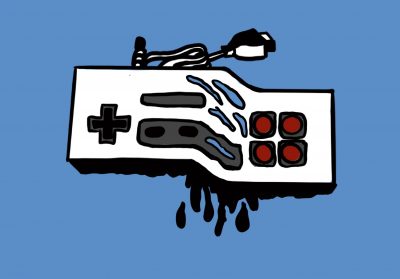For many years now, there has been an ongoing debate about the artistic merit of video games. As a form of media, should they be held in the same regard as movies, TV and music? In terms of archiving, at least, video games lag far behind these counterparts.
Video games hit store shelves as soon as the technology for playing them began to be invented, and as a result, the hardware was constantly evolving. The Nintendo Entertainment System came out in the 1980s, with games loaded onto chips inside big plastic cartridges. Graphics became more advanced and cartridges grew smaller until, eventually, games moved to disc formats, with developers releasing a new console every few years to keep up.

This makes playing a retro video game on the original hardware extremely difficult. If you don’t already own everything you need, you will need to track down the original console and original game when new copies of either haven’t been manufactured in perhaps 20 years. As the founder of the Video Game History Foundation explained in an interview with CBC, “It would be like the only way to watch Back to the Future is to have a VCR and an old tape that you had to buy on eBay.”
The easiest solution to this problem is emulation. In a broader tech context, “emulation” refers to any instance of a computer replicating another computer. In video games, it refers to a program on a computer that simulates a gaming console.
Legally, emulation usually counts as piracy. Emulating the function of a video game console on a computer is itself legal, but emulators are almost always used to play copies of old games downloaded from the Internet, and this process is the source of legal issues.
The thing is, it is only the developers’ fault that people so readily turn to emulation in the first place. In terms of archiving, ROMs — digital copies of the software on game cartridges and disks, derived from “read-only memory”— are critical for preserving the source code of games because developers are notoriously bad about doing it themselves.
Legendary game studio SEGA, for instance, couldn’t even put the original games from their Ninja Gaiden franchise on a re-release of multiple installments in the series because the code was almost entirely lost. Also of note is that no one, not even Nintendo, knows the release date of the original Super Mario Bros.
Even the code of the original Super Mario Bros. may be lost to time — a re-release of the game for the Nintendo Wii was later discovered by hackers to be based at least in part on a ROM ripped by a fan many years ago. While the exact reason for this is unknown, the game was possibly not well preserved by Nintendo themselves.
Such re-releases point to the way developers are economically incentivized not to allow easy access to their titles. Disney’s “vault” approach of restricting sales of old properties except for specific releases is quite lucrative, as Nintendo is likely aware. Disney was also the group lobbying so hard for copyright laws to be tightened — game developers can thank Mickey Mouse for their ability to safeguard their intellectual property.
The state of video game emulation, then, is a strange one. While not technically illegal, using emulators to play a ROM file that you received from someone else — by far the most common use of emulation — is illegal, and yet it is the best way to preserve games. Developers cannot be counted on to preserve the code of their works, and playing retro games legitimately on the real hardware is very difficult, and may even be impossible if consoles continue to decay.
Instead of pinning the blame entirely on developers, we should instead focus our attention on the ways they are incentivized to limit the release of their work: the market economy and draconian copyright laws. If we work to reform those, the positive effects will reach far beyond just the gaming sphere, too.






















































































































